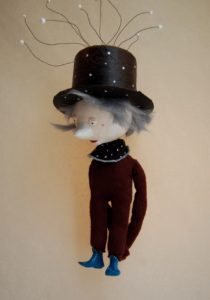
By perceiving life as one big game, I choose work as a call in which I can give myself the best, ignore time and be just in space. Such a way of life allows me to be in this time and space, free from coercion. In this way, the time for me becomes a stretchy sock, and the legitimacy of space becomes less important because I create my own space in which my thoughts move and where I meet similar players. Sometimes this is happening through sleep (dream?), but most often through creation. Through creation, a person comes to oneself, by creating, he is freed from the burden of earthly life, even though he alone is completely immersed in it.
“In that pleasant, in that good, in that perfect, a man is only serious, but with beauty he plays … That real beauty is worth the real urge to play; by the ideal of beauty that the mind sets up, so is the ideal of the urge to play, that a man must have in front of his eyes in all of his games, also set up. We will never go astray if we are looking for the ideal of a man’s beauty on the same path on which he fulfills (indulges) his urge to play … because, we should finally say it, a man is playing only there where he is in the full meaning of the word a man, and he is only completely a man where he plays. “[1]
“Isn’t the doll a companion of humanity since its earliest childhood? Who knows, how much do we owe to her? “… Isn’t it at the same moment, when a doll was shaped from a clod of earth or perhaps from wrapped grass, that imagination was born, and with it also play, poetry, and beautiful arts? Isn’t the ability to create the best we possess, the one thing we are most proud of? “[2]
[1] F. Schiller, About aesthetic upbringing of a man in a series of letters, fifteenth letter, Scarabeus edition, Zagreb 2006. Page 89
[2] Selma Lagerloef „Emigrant“ (translation for internal use – Sunčica Vidulić-Vulelija)
Matryoshka
Pigeons at the Spancir fest in Varaždin